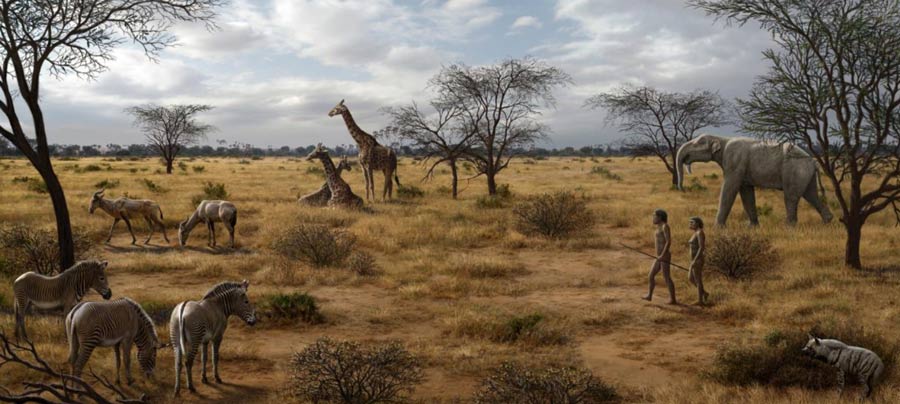April 12 2022 – 16h: international seminar Palevoprim n° 33
Speaker
John Rowan
Department of Anthropology, University at Albany
Topic
Homo erectus and ancient hominin impacts in Africa
Extant humans (Homo sapiens) possess a unique and often devastating capacity to modify Earth’s environments (e.g., biodiversity loss, climate change), but it remains unclear when in the course of hominin evolutionary history our ancestors began impacting environments at large spatial scales. For decades, the appearance of Homo erectus has been causally linked to extinctions of large-bodied mammals during the Early Pleistocene of eastern Africa, in part because this species possessed a relatively large brain and is thought to have been more carnivorous than earlier hominins. In this talk, I review some of recent and ongoing work by myself and collaborators on this issue, with a critical evaluation of the evidence (or lack thereof) for ancient hominin impacts on African environments.

John Rowan is a biological anthropologist trained at the Arizona State University. He is specialized in the ecology and evolution of mammalian faunas, terrestrial ecosystems, and early hominins in the African fossil record. His work primarily focuses on the relationships between climatic, environmental, and ecological changes through time. He uses a diverse analytical and theoretical toolkit spanning paleosciences (paleobiology and paleontology), geosciences (paleoclimatology and paleoenvironments), and anthropological sciences (human origins and zooarchaeology).
Place
Room 410, build. B35 (3rd floor, northern wing), University of Poitiers.




